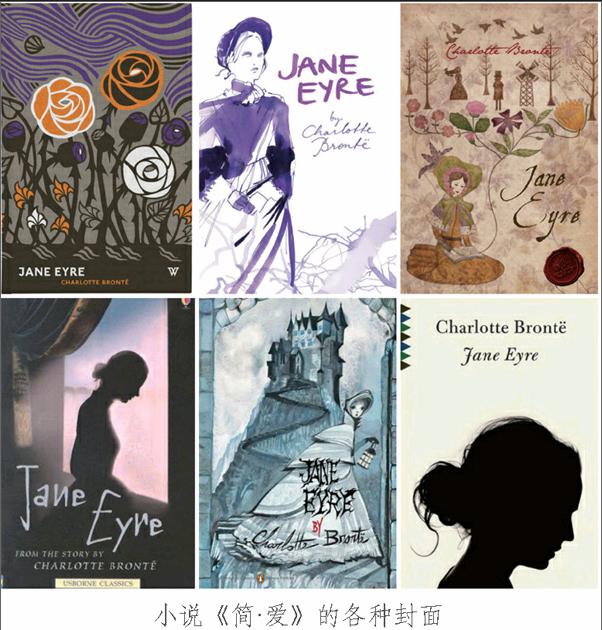《茫茫藻海》:桑菲尔德庄园里的幽灵
2016-08-04陈榕
陈榕


琼·里斯(Jean Rhys, 1890~1979)出生于英属西印度群岛的多米尼加,父亲是来自威尔士的医生,母亲是当地的克里奥人。她在当地接受教育,16岁时离开故乡来到英国求学,19岁就读于皇家戏剧艺术学院,因地方口音重而被劝退学,当演员的梦想就此破碎。之后她打过各种零工,1924年遇到了文学上的伯乐——英国作家福特·麦多克斯·福特(Ford Madox Ford),在他的鼓励下从事小说写作。她的作品以无根的现代人尤其是夹在加勒比海文化和英国文化之间的移民为主人公,描绘了他们的漂泊经历和彷徨内心,代表作有《黑暗中的航程》(Voyage in the Dark)、《早安,午夜》(Good Morning, Midnight)和《茫茫藻海》(Wide Sargasso Sea)。其中,《茫茫藻海》被称为是《简·爱》的前篇。
It was getting hot and I was tired when I reached the path to Christophines two-roomed house, the roof shingled2), not thatched3). She was sitting on a box under her mango tree, smoking a white clay pipe and she called out, “Its you, Antoinette? Why you come up here so early?”
“I just wanted to see you,” I said.
She helped me loosen Preston4)s girth5) and led him to a stream near by. He drank as if he were very thirsty, then shook himself and snorted. Water flew out of his nostrils. We left him cropping grass and went back to the mango tree. She sat on her box and pushed another towards me, but I knelt close to her touching a thin silver bangle that she always wore.
“You smell the same,” I said.
“You come all this long way to tell me that?” she said. Her clothes smelled of clean cotton, starched6) and ironed. I had seen her so often standing knee deep in the river at Coulibri, her long skirt hitched up, washing her dresses and her white shifts7), then beating them against the stones. Sometimes there would be other women all bringing their washing down on the stones again and again, a gay busy noise. At last they would spread the wet clothes in the sun, wipe their foreheads, start laughing and talking. She smelled too, of their smell, so warm and comforting to me (but he8) does not like it). The sky was dark blue through the dark green mango leaves, and I thought, “This is my place and this is where I belong and this is where I wish to stay.” Then I thought, “What a beautiful tree, but it is too high up here for mangoes and it may never bear fruit,” and I thought of lying alone in my bed with the soft silk cotton mattress and fine sheets, listening. At last I said, “Christophine, he does not love me, I think he hates me. He always sleeps in his dressing-room now and the servants know. If I get angry he is scornful and silent, sometimes he does not speak to me for hours and I cannot endure it any more, I cannot. What shall I do? He was not like that at first,” I said.
Pink and red hibiscus9) grew in front of her door, she lit her pipe and did not answer.
“Answer me,” I said. She puffed out a cloud of smoke.
“You ask me a hard thing, I tell you a hard thing, pack up and go.”
“Go, go where? To some strange place where I shall never see him? No, I will not, then everyone, not only the servants, will laugh at me.”
“Its not you they laugh at if you go, they laugh at him.”
“I will not do that.”
“Why you ask me, if when I answer you say no? Why you come up here if when I tell you the truth, you say no?”
“But there must be something else I can do.”
She looked gloomy. “When man dont love you, more you try, more he hate you, man like that. If you love them they treat you bad, if you dont love them they after you night and day bothering your soul case out. I hear about you and your husband.” she said.
“But I cannot go. He is my husband after all.”
She spat over her shoulder. “All women, all colours, nothing but fools. Three children I have. One living in this world, each one a different father, but no husband, I thank my God. I keep my money. I dont give it to no worthless man.”
“When must I go, where must I go?”
“But look me trouble, a rich white girl like you and more foolish than the rest. A man dont treat you good, pick up your skirt and walk out. Do it and he come after you.”
“He will not come after me. And you must understand I am not rich now, I have no money of my own at all, everything I had belongs to him.”
“What you tell me there?” she said sharply.
“That is English law.”
“Law! The Mason boy10) fix it, that boy worse than Satan and he burn in Hell one of these fine nights. Listen to me now and I advise you what to do. Tell your husband you feeling sick, you want to visit your cousin in Martinique. Ask him pretty for some of your own money, the man not bad-hearted, he give it. When you get away, stay away. Ask more. He give again and well satisfy. In the end he come to find out what you do, how you get on without him, and if he see you fat and happy he want you back. Men like that. Better not stay in that old house. Go from that house, I tell you.”
“You think I must leave him?”
“You ask me so I answer.”
“Yes,” I said. “After all I could, but why should I go to Martinique? I wish to see England, I might be able to borrow money for that. Not from him but I know how I might get it. I must travel far, if I go.”

1. 节选部分以女主人公安托瓦内特(Antoinette)的口吻,讲述了她找女仆克里斯托芬(Christophine)谈心的情节,她想让克里斯托芬帮其解决情感问题。
2. shingled [????ɡ(?)ld] adj. 用木瓦覆盖(屋顶)的
3. thatched [θ?t?t] adj. 用茅草覆盖(屋顶)的
4. Preston:普勒斯顿,小说中女主人公骑的一匹马
5. girth [ɡ??(r)θ] n. (固定马鞍或鞍上货物的)肚带
6. starched [stɑ?(r)t?d] adj. 上过浆(用淀粉浆硬衣服)的;硬挺的
7. shift [??ft] n. 直筒连衣裙
8. he:这里指小说中的男主人公罗切斯特先生。
9. hibiscus [h??b?sk?s] n. 木槿;芙蓉花
10. the Mason boy:指小说中女主人公安托瓦内特的哥哥,她的继父梅森的儿子。
作品赏析
小说《简·爱》中的桑菲尔德庄园是一个有秘密的庄园。它有着整齐的草坪、漂亮的花园、气派的建筑,里面住着美丽如精灵般的小姐阿黛拉和潇洒不羁的罗切斯特先生。它看起来就像是维多利亚时代的理想庄园,但是一旦进入夜晚,这里的气氛就会变得阴森恐怖,好像有幽灵出没其中:走廊里总能听到徘徊的脚步声,还会有细碎的歇斯底里的笑声在庄园里回荡,甚至半夜里曾有人闯入家庭女教师简的房间,将她婚礼要用的面纱一撕两半。
随着故事的发展,幽灵的秘密大白于天下:原来罗切斯特先生曾结过婚,15年前他远赴加勒比海迎娶他的妻子伯莎·梅森,目前伯莎还活着,但她已经疯了,正被他囚禁在桑菲尔德庄园的阁楼里。《简·爱》的作者夏洛蒂·勃朗特在小说中这样描写伯莎:“那是什么呢,是野兽还是人?乍一看,看不清楚;它似乎在用四肢匍匐着;它像个什么奇怪的野兽似的抓着、嗥叫着;可是它又穿着衣服;密密层层的黑发夹杂白发,蓬乱得像马鬃似的遮住了它的头和脸。”这个半人半兽、像幽灵一样的疯子就是罗切斯特的妻子。可是他为什么会和这样一个女人结婚?按照罗切斯特的说法,他和伯莎结婚时,根本看不出伯莎是疯子,两人曾经有过短暂的幸福。可是伯莎来自于一个疯子世家,“三代都是白痴和疯子”。伯莎的母亲既是个疯女人,也是个酒鬼。伯莎继承了母亲血统中不好的一面,既疯癫又酗酒。罗切斯特称自己上了当,一纸婚约强制性地将他与这个野兽般的女子绑在了一起。
罗切斯特的说法让读者产生了两个疑点:罗切斯特为什么要远赴加勒比海迎娶这个他并不了解的女人?罗切斯特最初见到伯莎时,她和正常人一样并没有精神问题,那又是何事引发了她的疯病?琼·里斯从《简·爱》故事的这两个疑点出发,在《茫茫藻海》中为伯莎作传,让我们看到了这个阁楼疯女人的悲剧人生。
在《茫茫藻海》中,“伯莎”是罗切斯特给女主人公起的英国名字,女主人公真名叫安托瓦内特,是英属牙买加出生的克里奥人。她童年时家道中落,父亲过世,母亲安妮特独自带着她和她罹患脑瘫的弟弟皮埃尔艰难度日。自从安托瓦内特的父亲去世后,她的母亲安妮特成日郁郁寡欢,根本无暇顾及女儿,所以安托瓦内特的日常起居都是黑人女佣克里斯托芬照料。安托瓦内特一家经济窘境的改善来自于母亲的再嫁。英国人梅森先生娶了她的母亲安妮特。可是在一次黑奴发动的针对种植园主的暴动中,安托瓦内特的弟弟皮埃尔被烧死了,母亲安妮特因此精神崩溃,酗酒疯癫,安托瓦内特则被送进修道院,在那里度过了自己的青春时光。到了适婚年龄,安托瓦内特由梅森先生的儿子——也就是和她没有血缘关系的哥哥理查德·梅森——安排,嫁给了罗切斯特先生。
罗切斯特不远万里来到加勒比海地区迎娶安托瓦内特,完全是为了对方的丰厚妆奁。他是家中次子,按照当时英国法律的长子继承制,他无缘财富。他的父亲为他打算,让他迎娶这个来自殖民地的女子。和安托瓦内特的婚姻为罗切斯特带来了三万英镑的丰厚收入,他可以高枕无忧地继续过绅士生活,但罗切斯特却对自己不得不出卖感情以换取经济保障耿耿于怀。出于自尊心,他从心理上排斥安托瓦内特,当他发现自己对安托瓦内特产生了迷恋,就以为对方用了巫术,操纵了他的感情,转而对她变得冷淡。身处这场无爱婚姻中的安托瓦内特只能借酒精麻醉自己。她喝醉后的发泄又被罗切斯特解读为疯言疯语。安托瓦内特生父的混血私生子丹尼尔也借机造谣,告诉罗切斯特安托瓦内特有疯子和酒鬼的血统,令罗切斯特认为自己在这场婚姻中上了当、受了骗。他找医生将安托瓦内特诊断为疯癫病,先将她软禁在家中,后来又将其带回英国。孤立无援的安托瓦内特被关在桑菲尔德庄园里,变成了《简·爱》中阁楼上的疯女人。
《简·爱》中的罗切斯特先生有着迷人的举止、机敏的头脑、丰沛的感情,他对身为家庭女教师的简情有独钟,藐视阶级差异,不在意简的身份是一个一文不名的孤女,爱上了简独立的灵魂,是浪漫小说的理想男主人公。这则浪漫爱情故事的前提是罗切斯特先生拥有桑菲尔德庄园的优渥生活,其基础则来自于他与牙买加妻子的婚姻。但他却无比痛恨这段婚姻,认为自己是无辜的受害者。在《茫茫藻海》中,琼·里斯让我们看到了罗切斯特和安托瓦内特都是受害者,但相比而言,比受缚在一场交易婚姻中的罗切斯特更不幸的是安托瓦内特。安托瓦内特的人生是错位的人生:身为白人,她生活在黑人占大多数的牙买加,从出生就背负殖民主义的原罪。牙买加的种植园经济是以白人殖民者为中心,白人是高高在上的主子,从事重体力劳动的则是被从西非地区贩卖到这里的黑人,白人与黑人之间存在着激烈的对立。安托瓦内特的弟弟就死于黑人的暴动。由于当地白人和黑人的人口比例是1∶9,安托瓦内特在童年时没有同龄的白人玩伴,她想要和黑人女孩提亚交朋友,却被送以绰号“白蟑螂”,还被对方用石头打破了头。尴尬的是,来自于大英帝国中心的英国人也不愿意视安托瓦内特这样的克里奥人为同类,认为他们不够白,是“白皮黑鬼”,属于帝国边缘地区的下里巴人。罗切斯特先生也为自己不得不迎娶这样一个妻子而感到尴尬难堪。
罗切斯特先生不喜欢加勒比海的风景:那里的天气太热,绿意太浓,昆虫太多,黑人们总用不友好的眼神望着他,他还需要日日面对一个他不能理解的妻子。所以他怀念北温带的英国,怀念它凛冽的寒冷、温和的绿意和古老的庄园。小说的结尾,他回到了故乡,然而他的归乡意味着安特瓦内特的背井离乡。安特瓦内特本就身世可怜,父亲早亡,母亲被当做疯子监禁了起来,现在她更是一无所有,不仅被扣上疯癫之名,财产归于丈夫,连最基本的自由都没有,被关在冰冷的阁楼上。所以她如困兽般徘徊在桑菲尔德庄园,成为古宅里的幽灵。她在梳理着癫狂的记忆,想要找回自我,找到回故乡的路。小说结尾,她一把大火烧掉了桑菲尔德庄园,烧死了自己,也让罗切斯特双目失明。这是她的复仇。在冉冉火焰中,她仿佛看到了保姆克里斯托芬、儿时的同伴黑人女孩提亚,同时也在英格兰的夜空看到了盛放的热带花朵和高大的生命树,这是她万里之外的加勒比海故乡的风景。
